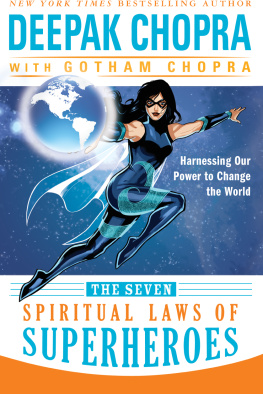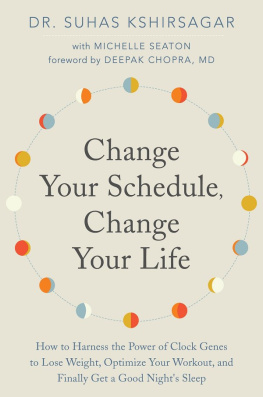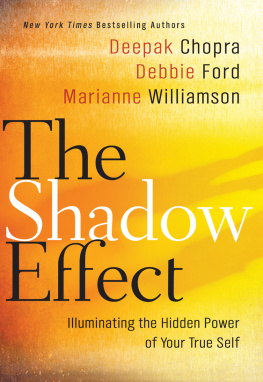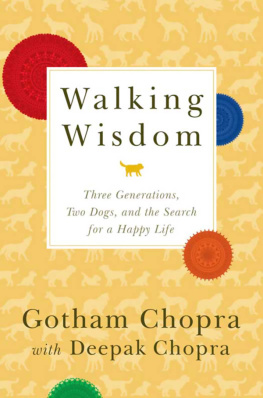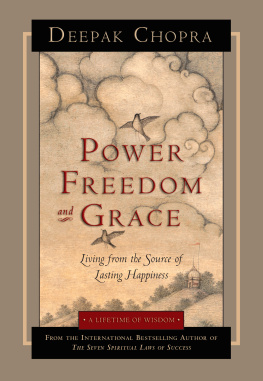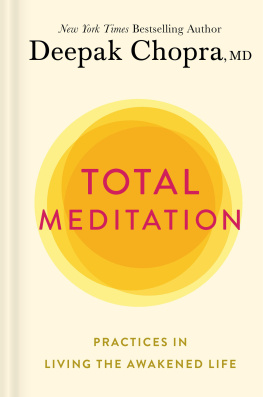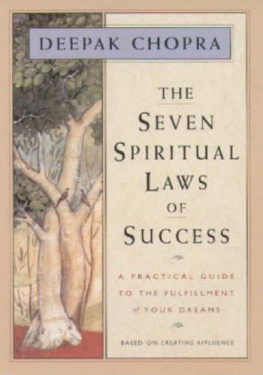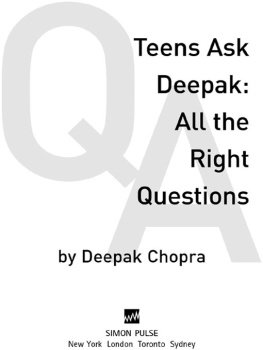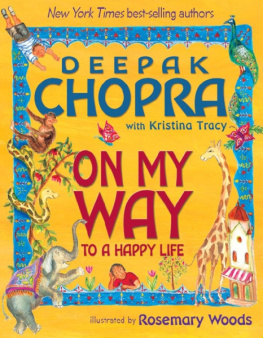The
Seven Spiritual Laws
of
Superheroes
Harnessing Our Power
to Change the World
Deepak Chopra
with Gotham Chopra

Contents
I read my first comic book when I was about six years old. My father handed it to me with the following instructions: Hereread this. The most important thing youll ever learn is how to tell great stories.
Contrary to what may seem obvious, given my name, that comic was not actually Batman (Gautam, Gotama, or my anglicized spelling, Gotham, is the original name of the Buddhahow it became Gotham City, I have no idea), and I can attest to the fact that only recently has my father become a fan of the Dark Knight. That first comic was actually a story about Lord Krishna, one of Indias most beloved gods.
I. Loved. It.
Through the years, Id amass more old Indian comics every time my family traveled to our ancestral homeland in India to visit my grandparents who lived there. There were hundreds of those comics that chronicled all the great stories of Indian gods and goddesses, kings and queens, invaders and liberators, warriors and sages, and my cousins and I collected them all. Eventually, as I reached adolescence, I got caught up in the wave of Western comics too Batman, Superman, Spider-Man, X-Men, and all the rest. I studied Alan Moore and Stan Lee and other visionary thinkers who toiled in the relatively obscure world of comic-book storytelling. Several years ago, I even started a comic-book company with a good friend and rode yet another comic-book wave as countless characters donned their capes and tights and took Hollywood by storm.
All this while, my father was leading a charge, bringing the East to the West, making things like yoga and chai and ideas like karma and mantras part of our everyday vernacular. Sure, I noticed. How could I not? He was on Oprah . Elizabeth Taylor and Michael Jackson came to our house for dinner. His bestsellers paid my college tuition.
But then our worlds really started to intersect. In a college film class, I watched Star Wars again. Use the force, Luke... rang a bell. So did Morpheus in The Matrix: The world is an illusion.
More recently, Heroes, Lost, The Dark Knight, and many, many more iconic television shows and films spoke to so many of the ideas that have laced my fathers books for the past two decades. And its a two-way street. A couple of years ago when I helped facilitate a discussion at the San Diego Comic-Con between my dad and comic icon Grant Morrison, an audience member asked my father a question about quantum consciousness. He turned and stared at me with wide eyes and a grin. I knew what he was thinking: He was among his own.
With all that in mind, recently while hanging out with my father (and now as a father myself) and discussing the teetering perch upon which our planet seems to be balanced, I was reminded that he was the one who introduced me to comics in the first place, along with the clear notice that they would play a central part in the most important thing Id ever learn.
This time, I wasnt going to miss the opportunity to find out why.
Gotham Chopra
When my children, Mallika and Gotham, were growing up, we had a ritual every night before they went to sleep. I would tell them a story, usually some sort of mythic tale involving good versus evil, nature, or talking animals. At some point that qualified as a cliff-hanger, where the story reached a climactic stage in which the central character had to confront a nemesis, face some dramatic challenge, or make a critical decision, Id stop. Id then ask them to dream up the ending overnight with as much drama as possible. With those instructions, theyd go off to sleep poised for an adventure. In the morning, when they woke up and climbed into our bed, Id ask them to tell me about their dreams. Id listen patiently as they narrated the quests theyd been on. I was amazed at their fertile imaginations and the magnificent journeys they went on in the midnight hours. Frequently their stories reminded me of the great myths of humanitythose epic stories of good versus evil, romance and drama, betrayal, loyalty, conflict, conquest, virtue, and vice, many emotions and experiences that they themselves had not yet confronted in their young lives. Were their innocent minds tapping into the deep reservoir of the collective imagination?
The great Swiss psychologist Carl Jung made us aware of the collective unconscious and its archetypal symbols. Myths exist in this akashic field, or a nonlocal plane of existence, where information, and in this case the collective imagination, is stored and from which it gets re-created generation after generation. Myths are the closest we can come to conceptualizing the nonconceptualthe infinite. They are the highest expression of the finiteof striving to articulate the infinite. These tales are primordial; they capture the transcendent and then cloak it with beginnings, middles, and ends. Often the stories are similar, but take on modern masks and costumes. They have a simple plot and compelling characters and often depict the eternal struggle between good and evil, the sacred and profane, the divine and diabolical. The good guys keep winning, but never really win. The bad guys often lose, but occasionally give the impression that theyve won. In truth neither side ever really wins or loses, and the story never ends. This is the dance between creativity and inertia, between evolution and entropy.
Later, as the kids grew up, when I traveled back from my ancestral homeland in India, Id bring them suitcases full of native comics that retold the great epics of our Indian heritage. This of course further stimulated their imaginations, since the great stories of countless gods and goddesses, emperors and conquerors were so vividly depicted in the pages of those comics. I like to think that all of this played a very strong role in the fact that both Mallika and Gotham have grown up to be great storytellers.
While in high school Gotham was never the strongest student as far as grades go, but his creativity was noticeable, and that trend continued in college, when he attended Columbia University in New York City. As I always had, I chose to focus my support on those areas he was interested in rather than worry about his grades in areas he seemed disinterested in. I encouraged his collegiate explorations in the subjects of comparative religion, literature, and film. Upon graduation, he and his friend Sharad Devarajan conceived the idea of reimagining some of the Indian stories chronicled in those old comic books and bringing them to the world.
Together they started to recruit young writers and artists in Indiaone of whom is named Jeevan Kang and whose original artwork fills out the following pages. Like Jeevan, these mavericks were mostly young men who otherwise would likely have ended up working as outsourcers for big Western studio conglomerates, but were instead excited by the idea of flexing their creative muscles and dreaming up new characters and stories. Soon Gotham and Sharad approached Sir Richard Branson for investment support, and together they formed a comic-book company called Virgin Comics. Today, after years of building the company with the Virgin group, it is now owned mostly by Gotham and Sharad and is named Liquid Comics (www.liquidcomics.com). Gotham, Sharad, and the creators they have assembled produce great modern myths and are developing their stories beyond the page into digital domains, feature films, video games, and more. Some of their projects are in collaboration with filmmakers like John Woo, Guy Ritchie, Shekhar Kapur, Wes Craven, and others.
This book is an evolution, culmination, and amalgamation of all of the above. In many ways, I see it as a distillation of years worth of my own ideas, explorations, understanding of consciousness, and mythmaking fused with those of Gotham and a new generation of creators and storytellers. I take great pride in the notion that once again, like so many years ago, I started stories filled with archetypal elements and characters and am listening in as my son and others in partnership with me take them to great new heights. This is consistent with my belief that real, enduring myths and the characters that populate them are never generated by one creator. They are drawn from those universal fields that are the fruit of eons worth of human dreams, aspirations, fears, and imaginings, and they are in constant transformation and evolution.
Next page
